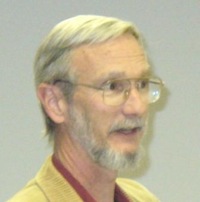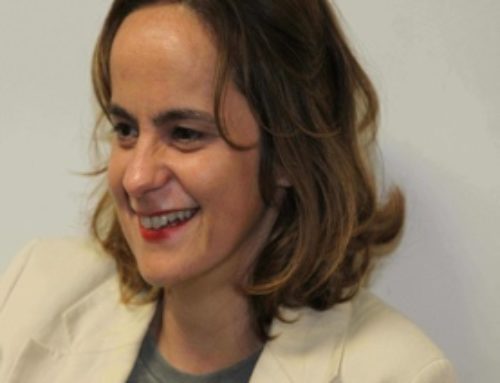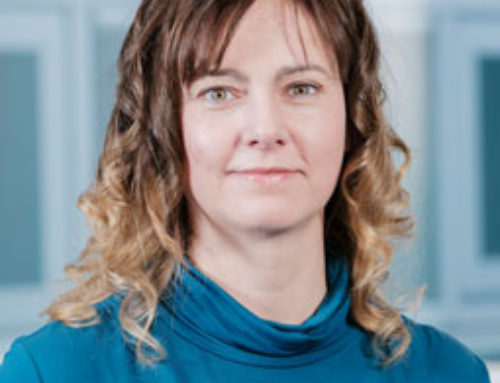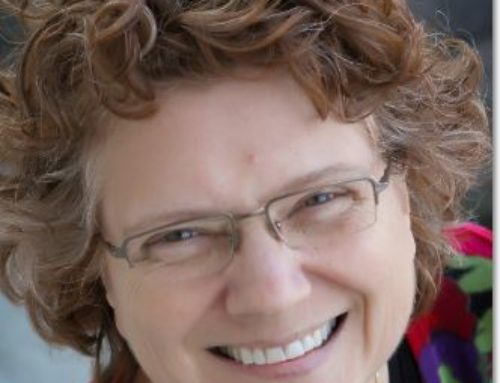HETL Note: We are proud to continue our series of articles on innovation in higher education with this opinion article contributed by Dr. Ed Cunliff, Dr. Rachelle Franz, and Tracey Romano – three educationalists who actively practice transformative learning at their university. The articles focuses on the role and value of self-reflection, and how self-reflection may help practitioners engage in transformation and motivate their students to follow the same path. Supported by data gathered from academic and student participants, the authors offer insights into how critical reflection is perceived, its potential to facilitate transformative learning, and what the potential pitfalls may be. You may submit your own article on the topic – see the Submissions page on this portal for submission requirements.
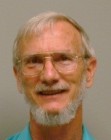 Authors bios: Dr. Ed Cunliff is a Professor of Adult and Higher Education at the University of Central Oklahoma. Ed has over 35 years of experience in innovative professional and organizational development. He has worked in social services, health care and higher education and has served in a consultative role with dozens of organizations. His current learning and research activities include: transformative learning, authentic leadership in educators, impact evaluation of non-profit organizations, and the connections between wellness activities and individual learning outcomes. Professor Cunliff can be contacted at: [email protected]
Authors bios: Dr. Ed Cunliff is a Professor of Adult and Higher Education at the University of Central Oklahoma. Ed has over 35 years of experience in innovative professional and organizational development. He has worked in social services, health care and higher education and has served in a consultative role with dozens of organizations. His current learning and research activities include: transformative learning, authentic leadership in educators, impact evaluation of non-profit organizations, and the connections between wellness activities and individual learning outcomes. Professor Cunliff can be contacted at: [email protected]
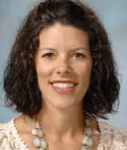 Dr. Rachelle Franz is an Assistant Professor of Physical Education and Health in the Department of Kinesiology and Health Studies at the University of Central Oklahoma (UCO). At UCO, she coordinates the Healthy Life Skills courses and the newly established Institute for Coordinated School Health. In addition to her passion for teaching, she has recently developed a strong interest in research opportunities, including the importance of reflection in both transformative learning and service learning. Dr Franz has co-authored several grants, each one geared toward building collaborations between UCO and community partners that establish an environment for transformative learning. She offers enthusiasm and passion for educating others about the benefits of physical activity and is committed to modeling a healthy and active lifestyle. Dr Franz can be contacted at: [email protected]
Dr. Rachelle Franz is an Assistant Professor of Physical Education and Health in the Department of Kinesiology and Health Studies at the University of Central Oklahoma (UCO). At UCO, she coordinates the Healthy Life Skills courses and the newly established Institute for Coordinated School Health. In addition to her passion for teaching, she has recently developed a strong interest in research opportunities, including the importance of reflection in both transformative learning and service learning. Dr Franz has co-authored several grants, each one geared toward building collaborations between UCO and community partners that establish an environment for transformative learning. She offers enthusiasm and passion for educating others about the benefits of physical activity and is committed to modeling a healthy and active lifestyle. Dr Franz can be contacted at: [email protected]
 Tracey Romano, M.Ed. is the executive assistant in the Office of Institutional Effectiveness at the University of Central Oklahoma (UCO). In addition to being the point of contact for the Offices of Institutional Assessment and Research, her central responsibilities within the unit consist of department management and special projects. She serves on various university committees involving issues from service learning to campus empowerment and professional growth to provide transformative learning experiences for university staff as well as students. Her involvement on campus also includes being coadvisor for the UCO Students for Accessible Society which works to bridge the gap and help create a more accessible society for students who experience disabilities. Tracey Romano can be contacted at: [email protected]
Tracey Romano, M.Ed. is the executive assistant in the Office of Institutional Effectiveness at the University of Central Oklahoma (UCO). In addition to being the point of contact for the Offices of Institutional Assessment and Research, her central responsibilities within the unit consist of department management and special projects. She serves on various university committees involving issues from service learning to campus empowerment and professional growth to provide transformative learning experiences for university staff as well as students. Her involvement on campus also includes being coadvisor for the UCO Students for Accessible Society which works to bridge the gap and help create a more accessible society for students who experience disabilities. Tracey Romano can be contacted at: [email protected]
~~~~~~~~~~~~~~~~~~~~~~~~~~~~~
Transforming Self to Facilitate Transformative Learning
Ed Cunliff, Rachelle Franz, and Tracey Romano
University of Central Oklahoma, U.S.A.
Abstract
There is extensive literature on the value of self-reflection, regardless of the specific nomenclature. Much of what is written focuses on a theoretical understanding, within the educational arena, on helping others master the reflective process. This literature, and the personal experiences of the authors facilitating transformative learning at the University of Central Oklahoma, leads to a questioning of the importance of reflection and personal transformation on the part of faculty themselves. This article describes an initial, interactive effort to explore the issue.
Keywords: Transformative learning, self-reflection, authenticity, experiential learning, adult learning.
A Transformative Journey
The philosopher Martin Buber is credited with having said, “All journeys have secret destinations of which the traveler is unaware.” (2013). Over ten years ago the University of Central Oklahoma’s (UCO) Academic Affairs Strategic Planning process began a journey, still in progress, that few would have anticipated. The journey led to the development of a model of Transformative Learning (TL) that was inclusive of all faculty, staff and students. This paper elaborates on and discusses the importance of critical self-reflection on the part of Faculty as one of those “secret destinations” that the authors believe are critical for the transformative journey to be successful.
Two events started the authors on this journey: the annual faculty development day at the start of the academic year, and later in the year, the UCO transformative learning conference. At the faculty development day, two of the article’s authors facilitated a session about TL, titled “Principles to Practice”. About thirty faculty members attended the session. As TL is a dominant theme at UCO, the reception to the facilitation and the ideas shared amongst the participants were rewarding. Three questions led the discussion. The first was a simple probe regarding individual definitions of TL. While it is defined operationally at the institution, it is important for each individual to develop their own interpretation. The second question asked about the principles faculty thought were involved in TL. The final question was regarding which faculty members implement TL, within their discipline, in the classroom. This question sparked strong discussions and acted as the “take away” component for most participants. As one might anticipate, there were differences in the responses to each of the questions, but consistent themes emerged. Findings have since been shared on campus as a means of continuing the discussion and developing skills.
As the session came to a close, the facilitators realized an opportunity had been missed as another path had revealed itself. The questions asked were focused outside the individual, or at least were more cognitive in nature. What had been omitted was the critical element of the individual faculty member’s willingness to participate in transformation themselves. It became apparent that the questions asked about TL practices lacked a reflective element on behalf of the individual faculty member. The practices we ask of students must in some way also be done by the faculty member. Was it appropriate to ask for transformation on the part of students if faculty were not also engaged in transformative processes?
For faculty self-reflection may occur in informal conversations in the hallway as well as in discussions in the formal rooms of academia. “Practice what you preach” is one of the many old adages that guide practitioners in various fields. Likewise, the call to “know thyself” carries a similar message. Both of these phases provide guidance for the first-time practitioner, but how does one apply these ideas to the classroom environment?
Business theorists are greatly interested in self-reflection. In the relatively new leadership model of authentic leadership one finds references to the Socratic argument that a life unexamined is not worth living (Hutchison, 1995). In a recent meta-analysis of the literature on authentic leadership one of the dominant themes was the individual who has a strong sense of purpose that comes from knowing his or her self: “Authentic leaders are dedicated to developing themselves because they know that becoming a leader takes a lifetime of personal growth” (George, 2003, p. 12).
Shareski (2013) expressed a similar sentiment in his blog: “If we want students to take ownership of their learning, shouldn’t we want the same for teachers?” Cranton (2006) stated it succinctly: “To enter into an authentic relationship with students, one that has the potential for transformative dialogue, teachers need to have a good understanding of themselves” (p. 8). Cranton’s work on authenticity in the classroom serves as a great example of the interest in and the call for self-reflection on the part of educators.
Mezirow (1997) in his delineation of the steps of TL identified self-reflection on the part of the educator as essential. “As mentioned earlier, we transform frames of reference-our own and those of others-by becoming critically reflective of their assumptions and aware of their context-the source, nature, and consequences of taken-for-granted beliefs” (p. 19). However Mezirow’s work appears to address the function of the practitioner rather than introspection. Perhaps Servage (2008) is closer to our focus: as she stated that : “Transformative learning for teachers requires that they be willing and able to critically explore, articulate, negotiate, and revise their beliefs about themselves, their students, their colleagues, and their schools” (p. 70). What is also noteworthy in her comment is the sense that this reflection and transformative process is on-going. Too often the authors’ have heard individuals declare “I’ve been transformed”, simply to move into another state of motionlessness.
Coming to the issue from another perspective, Ettling (2006) presented an ethical challenge: “Do educators have the right to ask people to examine and change their basic assumptions as part of our educational programs… Is it justified to pose real-life dilemmas that force examination of one’s life story and lived assumptions?” (p. 63).Setting a foundation to support our belief that the practitioner should model self-reflection, Dirkx (2006) stated that “central to development of authenticity in teaching is self-understanding and self-awareness” (p. 27). Developing self-awareness and self-understanding can be the catalyst toward establishing a more reflective environment- one that encourages others to explore their personal assumptions. Perhaps Lebak and Tinsley (2010) framed it best when they said, “inquiry and reflection can be contagious” (p. 969). Current literature supports self-reflection as an essential component of TL. With this in mind, the authors continued moving forward on the transformative journey.
Moving Forward
In preparation for its first International TL Conference in March 2013, the UCO requested proposals that promoted a dialogical and conversational presentation style. UCO held several internal conferences on TL in previous years which presented an opportunity to alter the facilitator’s questions and make them more inclusive of the self-reflection needed in TL. This time the questions addressed the faculty member or facilitator’s approach to personal transformation:
- How important is it for the faculty – staff – students to practice and model self-reflection in order to encourage self-reflection in others? Explain.
- What are the conditions that encourage self-reflection in your life and profession?
- How or what do you do to build self-reflection into your daily life and work?
- What are the critical questions you need to ask yourself to encourage or support transformation?
These questions were asked in an interactive session with over sixty individuals who participated in the conference and attended this particular breakout session. This was not intended as a formal research effort, rather a dialogue amongst participants in the spirit of the conference. . The majority of the participants were faculty (31), though there were also staff (nonacademic personnel involved in student administration) (20) and students (13) involved. Most of the participants were from UCO, but eleven participants from other institutions attended as well. The total session duration was sixty minutes.
Consistent with the interactive nature of the conference the dialogical approach was a basic “Think, Pair, Share” process. Participants were asked to think about one question and write their thoughts on note cards, then to pair with someone they did not know and share their ideas. After participants had discussed each question they were invited, within the total group, to process and discuss the ideas coming from the pairs. Some responded, while others contributed as the process moved forward to the next question.
Participants were asked to code their cards to identify themselves as faculty, staff, or students so that we could see if there were distinctions between groups but otherwise the answers were anonymous. The note cards were gathered at the end of the session. The information gathered from the cards was sorted by participant type (faculty, staff, student) and the responses to each question were classified by the authors.
The importance of self-reflection
The responses to the first question showed unanimous support from faculty, staff, and students for the importance of self-reflection as a practice. Slight hesitation from a few faculty responses was evident when modeling self-reflection to encourage others. These respondents seemed either uncertain as to how self-reflection was actually modeled in the classroom, or they considered self-reflection a private process that should not be readily modeled.
The value and practice of self-reflection by faculty and staff in encouraging students was supported from a number of perspectives. One faculty member suggested, “Probably more important than what I teach is the way I act.” Another faculty phrased it slightly differently, “It is very important for faculty to practice and model self-reflection in order to encourage self-reflection in others. We constantly want thoughtful responses from students-we should be doing the same thing/modeling the behavior for them [grounded in who we are].” Another suggested it was also the best way to improve teaching.
Another participant (staff) shared a similar sentiment and mentioned that in order to help others one must begin with oneself. “How can they see the benefit or the practice if I haven’t benefited myself?” Another noted what was often considered a critical component of TL: willingness to take risks: “Vulnerability is key here – to normalize the discomfort in learning…”
Students also positively identified the value of self-reflection as they, students, compare their experiences with others. Self-reflection provides a “… way of taking your learning to another level.” There was also the ultimate challenge to authenticity: “We need to see that they [self-reflective moments] are valuable and effective so that we in turn can attach meaning to reflective practices. The telling model for this will not work.”
Encouraging self-reflection
The question regarding what encouraged self-reflection (“What are the conditions that encourage self-reflection in your life and profession?”) was rather broad and it was anticipated that responses might be somewhat philosophical in nature. The responses received were much more practical and direct than predicted. There were three distinctive primary themes that at times also blended and over-lapped: time, failure, and change.
Based on personal observations and interactions with other colleagues, it made sense that making and finding time for self-reflection was an issue for faculty, staff, and students. Time was seen as an essential condition for self-reflection. One individual responded succinctly with: “Time, Support, Change”. The responses seemed to indicate that this was a group of individuals who, for the most part, did find or create the time they needed, though perhaps not as much as they would have liked.
Space was another component participants identified as helpful in the self-reflective process; it was frequently associated with time: “Time and purposeful planning. I think it’s going to be different for each person based upon their unique individual personality… For me, quiet time.”
Journaling and meditation were two processes that required both time and space. Both were enhanced through a particular environment allowing individuals to improve focus. Several individuals mentioned the importance of giving self-permission to escape from the busy life, to take time for self. One individual suggested faculty needed sponsored grants to support this self-reflective time (somewhat similar to a sabbatical). Failure, though it might possibly be considered along with change, was specifically mentioned by faculty several times. It was also mentioned by staff, though surprisingly not by students who are constantly graded with “failure” as an option! One person responded directly, “Failure, struggle, misunderstanding.” Another expanded on the same theme with, “Usually when things go bad it is more likely I’ll self-reflect in my own life.” Regardless, the idea that failure leads to self-reflection is close to the idea of change as causative.
What Mezirow (2000) and others have referred to as “disruptive dilemmas” also played a significant role for all respondents. That came forward both as a planned happening and as something more outside of one’s control. One respondent said, “The conditions that encourage self-reflection in my life and profession are sometimes the ones I’ve never experienced before.” Another expressed, “Life forces it on you.”
At an institution that encourages TL the following comment was made by a faculty member who provided a positive view on the disruption: “Create risk! I do my best throughout the semester to introduce something “new” in order to reveal my own struggles to the students.” Another comment coming from a student indicated, “Taking a program in management development. The classes I’m taking encourage reflection.”
There were several comments from students as well as faculty and staff that affirmed the importance of managing change in the sense of turning change into an opportunity for learning and for something positive to happen: “Quite often change, disappointment, unexpected outcome – reflection allows me to process… improve, change, regroup, find the good.”; “I think adversity is a great condition to encourage self-reflection. We all have obstacles that we have to overcome and learn from.”
The “what” and the “how”
The third question presented to participants included both the “what” and the “how” of self- reflection. Though there was a wide range of responses, there were also some strong consistencies amongst all three sub-groups (faculty, staff, and students). The “what” and the “how” often over-lapped, so the following is a representation of the consolidated themes.
Not surprising for a university located in what is known as the ”Bible Belt” of the country several participants specifically mentioned prayer as a self-reflective practice, though not as a dominant component. Prayer offered the time alone and frequently the space mentioned earlier.
Other specific processes were referenced more frequently than prayer. Interacting with others – friends, mentors, colleagues were mentioned by the largest number of respondents. In an era of growing use of digital technologies it would be interesting to discover whether face-to-face or digital interactions were more dominant. No distinctions were made in the responses received.
Journaling and focused quiet time were equally helpful to participants followed by some form of physical activity, usually walking or working out. Journaling, or keeping a diary, has a long and honored tradition. There are some indications in the literature that it is being used to capture the first year students’ experiences as a means of encouraging authentic reflection (Everett, 2013). In almost all cases it appeared that participants had to intentionally find the time, space, and activity for self-reflection. Only one individual suggested it just happened and they did not plan for it.
Critical questions to support transformation
The final question regarded the individual’s approach towards encouraging and supporting transformation, by asking critical questions. Almost every response was different from the rest, but two themes seemed to prevail: improvement and purpose.
First were the critical questions that dealt with improvement. These involved examining strengths and weaknesses, while examining gaps between current status and desired states. Some questions had a professional focus while others appeared more personal in nature. But the dominant theme centered on improvement: “What did I do well? What do I need to improve? What did I learn?” Another similar question was, “Could I have put more effort into this?” The search for ways to improve was often rooted within the frame of helping others. “As a result of what I learned, what will I do differently? How can I be a better instructor?”
The second theme was directed at determining, assessing and re-assessing purpose. The critical questions about purpose also included a search for passion or joy. “What do I want to accomplish? What do I need to get there (resources)? How will I determine if I made it?” Similar responses were: “How are you really doing? What are you seeking? What is your passion?” Within the educational setting one of the more striking questions was, “Am I doing this for myself or for my students? “ In fact there was a brief moment of silence when this last question was verbalized (at the session) , as if to indicate that there was “food for thought” and it would take some time to digest it: How much of what one does as a faculty member is really for their own ego, and what drives that behavior?
Conclusion
This findings discussed above were derived from an interactive process with a small group – about sixty faculty, staff, and students who chose to attend a concurrent conference session on self-reflection in a TL setting. The demographics of the participant group and the intent of the process would not allow for generalizations. However, asking the same or similar questions in another setting might help establish an area of further research investigating the issues raised, and support faculty growth and development.
Our “takeaways” from the interaction with participants have implications for our own practice as faculty and staff. The authors and the session participants shared a perception of the value of self-reflection for he practitioner. Self-reflection as an element of transformation must, as participants expressed, come first from the practitioner before they can facilitate it for others. Of significant importance for faculty are the declarations by students that we must “walk the walk” and model behaviors we hope to see in them.
The interest in and value of self-reflection is well founded in the literature as well as in the experiences described above. The sense that we, as faculty, staff, and students must be willing to experience reflection and transformation has been affirmed in this experience. Continuing on the transformative journey, the authors realize the importance of authenticity as it relates to critical reflection. As we challenge ourselves to become more reflective individuals, it is our hope that students, as well as colleagues, will be inspired by our example and will begin their own personal, reflective transformation. There certainly may be connections that should be made to the literature on authenticity, but for the moment we simply turn the question to our colleagues: How important is self-reflection to you and what role does it play in your transformative journey?
References
Buber, M. (attrib.). Wikiquote. Retrieved from: http://en.wikiquote.org/wiki/Martin_Buber
Carusetta, E. & Cranton, P. (2005). Nurturing authenticity: A conversation with teachers.
Teaching in higher education, 10(3), 285-297.
Cranton, P. (2006). Fostering authentic relationships in the transformative classroom. New Directions for Adult and Continuing Education, 109, 5-13.
Dirkx, J. (2006). Authenticity and imagination. Authenticity in Teaching, 111, 27-39.
Ettling, D. (2006). Ethical demands of transformative learning. New Directions for Adult and Continuing Education, 109, 59-67.
Everett, M. (2013). Reflective journal writing and the first-year experience. International Journal of Teaching and Learning in Higher Education, 25 (2), 213-222.
George, B. (2003). Authentic Leadership. CA: Jossey Bass.
Hutchison, D. S. (1995). Ethics. In J. Barnes (Ed.), The Cambridge companion to Aristotle (195-232). Cambridge: Cambridge University Press.
Kernis, M.H. & Goldman, B.M. (2006). A multicomponent conceptualization of authenticity: Theory and research, In M.P.Zanna (Ed.) Advances in experimental social psychology, ( 38,283-357). San Diego: Academic Press.
Larkin-Wong, K. (2012). A newbie’s impression: One student’s mindfulness lessons. Journal of Legal Education, 61(4), 665-673. Retrieved from: http://www.swlaw.edu/pdfs/jle/jle614larkinwong.pdf
Lebak, K. & Tinsley, R. (2010). Can inquiry and reflection be contagious? Science teachers, students, and action research. Journal of Science Teacher Education, 21, 953-970.
Maslow, A. (1971). The farther reaches of human nature. New York: Viking Press.
Mezirow, J. (1997). Transformative learning: Theory to practice. New Directions for Adult and Continuing Education, 74, 5-12.
Mezirow, J., & Associates. (2000). Learning as transformation. San Francisco: Jossey-Bass.
Rudebock, C. D., & Worden, S. (2012). The labyrinth: A path for reflection and
transformative learning. Retrieved from:
http://www.uco.edu/academic-affairs/cettl/cettl-files/ucos-labyrinth.pdf
Servage, L. (2008), Critical and transformative practices in professional learning communities. Teacher Education Quarterly, Winter 2008, 63-77.
Shapiro, S. L., Brown, K. W., & Astin, J. A. (2008). Toward the integration of meditation into higher education: A review of research. Northampton, MA: Center for Contemplative Mind in Society. Retrieved from:
http://www.contemplativemind.org/programs/academic/MedandHigherEd.pdf
Shareski, D. (2013, June 21). Professional development is not that complicated. Ideas and Thoughts. [web blog post]. Retrieved from: http://ideasandthoughts.org/2013/06/21/professional-development-is-not-that-complicated/
This opinion article was accepted for publication in the International HETL Review (IHR) after a double-blind peer review involving four independent members of the IHR Board of Reviewers and two revision cycles. Accepting editor: Barbara Howell, Coventry University, UK.
Suggested citation
Cunliff, E., Franz,R., & Romano, T. (2014).Transforming self to facilitate transformative learning. International HETL Review, Volume 4, Article 9. https://www.hetl.org/opinion-articles/transforming-self-to-facilitate-transformative-learning
Copyright [2014] Ed Cunliff, Rachelle Franz and Tracey Romano
The author(s) assert their right to be named as the sole author(s) of this article and to be granted copyright privileges related to the article without infringing on any third party’s rights including copyright. The author(s) assign to HETL Portal and to educational non-profit institutions a non-exclusive licence to use this article for personal use and in courses of instruction provided that the article is used in full and this copyright statement is reproduced. The author(s) also grant a non-exclusive licence to HETL Portal to publish this article in full on the World Wide Web (prime sites and mirrors) and in electronic and/or printed form within the HETL Review. Any other usage is prohibited without the express permission of the author(s).
Disclaimer
Opinions expressed in this article are those of the author, and as such do not necessarily represent the position(s) of other professionals or any institution. By publishing this article, the author(s) affirms that any original research involving human participants conducted by the author(s) and described in the article was carried out in accordance with all relevant and appropriate ethical guidelines, policies and regulations concerning human research subjects and that where applicable a formal ethical approval was obtained.
